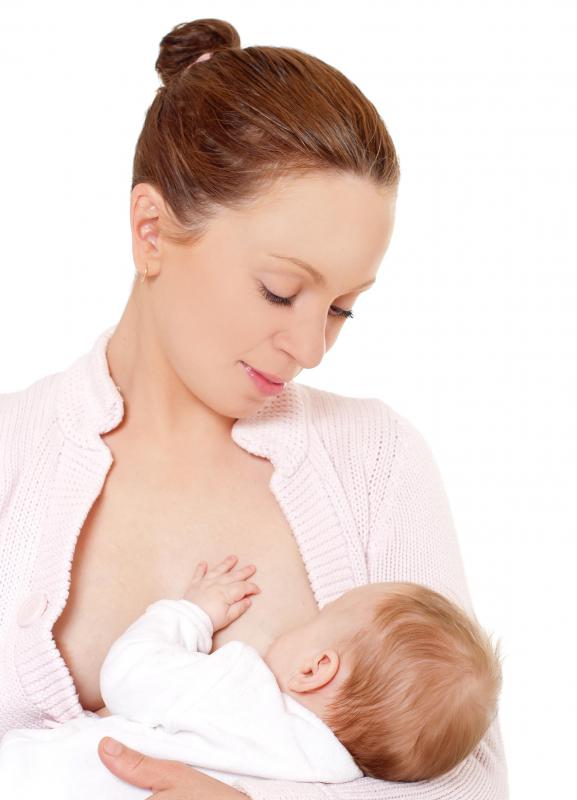At WiseGEEK, we're committed to delivering accurate, trustworthy information. Our expert-authored content is rigorously fact-checked and sourced from credible authorities. Discover how we uphold the highest standards in providing you with reliable knowledge.
What is the Connection Between Breastfeeding and Breast Cancer?
The connection between breastfeeding and breast cancer is a good one. Studies have shown that breastfeeding reduces the risk of both forms of breast cancer in premenopausal and postmenopausal women. In general, the longer the mother breastfeeds, the more protection she has against breast cancer. There are several theories as to why this connection exists between breastfeeding and breast cancer.
The preventative connection between breastfeeding and breast cancer depends on the lifetime total, or cumulative time, a mother spends breastfeeding all of her children. For example, if a mother breastfeeds her first child for one year and her second child for two years, her lifetime total would be three years. Studies have shown that a lifetime total of over one year slightly reduces the risk, while a total of two years produces twice the benefit, meaning a woman is 50 percent less likely to have breast cancer. A lifetime total of more than two years gives a woman even more benefit.

The majority of breast cancers are directly related to the presence of estrogen in the body. The two type of breast cancers are estrogen receptor-positive (ER+/PR+) and estrogen receptor-negative (ER-/PR-) tumors. There are several theories as to why breastfeeding and breast cancer have this positive connection for a decreased risk of breast cancer, most involving estrogen.
Since pregnant women and lactating women produce less estrogen, there is less of a chance for it to fuel tumors. Another theory concerns carcinogens and pollutants that would normally be stored in the body's fat; since lactating breasts have less room for fat, there would be a decreased level of cancer-causing agents present. Some theories note that the changes to the breast cells in a breastfeeding mother may decrease the risk for cancer as well.
Other benefits of breastfeeding occur for both the woman and the child. Women who were breastfed as infants were less likely to develop either form of breast cancer. In addition, breastfeeding helps reduce the incidence of middle ear infections, asthma and respiratory ailments, SIDS, and diabetes in the child. Studies have also shown that breastfeeding also decreases the risk of uterine, cervical, and ovarian cancers for the mother.
A woman needs to realize that lowered risk does not mean that there is no risk. It is important that all women conduct regular self-examinations of her breasts, even while breastfeeding. Breast cancer can develop in a breastfeeding mother, but can be hard to detect. Most lumps found while breastfeeding are due to plugged ducts or incidences of mastitis, but they can be a cause for concern and should be checked by a healthcare provider. Early detection is the best form of preventing cancer.
AS FEATURED ON:
AS FEATURED ON:











Discuss this Article
Post your comments